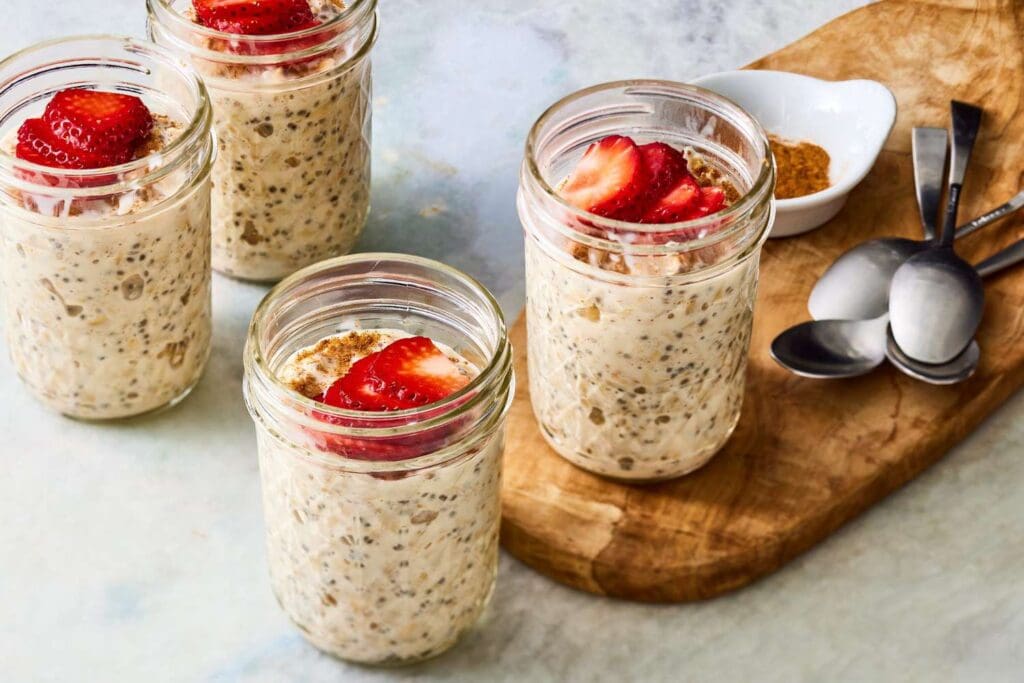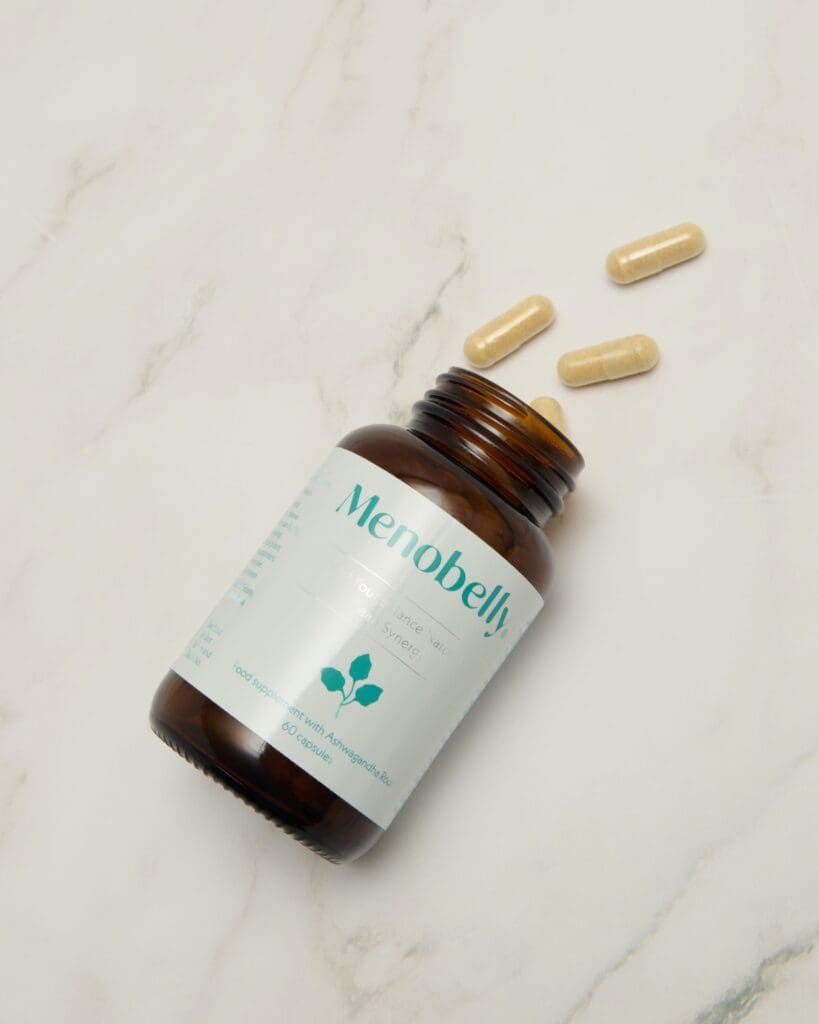August 27, 2025
How to Stop Menopause Bloating: Nutrition & Lifestyle Tips
Bloating is one of the most frustrating and uncomfortable symptoms many women face during menopause. Clothes feel tighter, your stomach feels distended, and sometimes it seems like nothing you do helps. But you’re not alone, and the good news is that there are solutions.
In this blog, we’ll look at the causes of menopause-related bloating and explore effective ways to manage it through diet and lifestyle adjustments.

Why Does Bloating Happen During Menopause?
Bloating during menopause is often caused by hormonal fluctuations, particularly the drop in oestrogen and progesterone. These hormones regulate fluid balance, digestion, and inflammation in the body. When they fall out of sync, it can lead to:
- Water retention
- Slower digestion
- Increased gas
- Changes in gut bacteria
- Weight gain or fat redistribution around the belly
This can result in the dreaded “meno belly”, a common term for the bloating and stubborn belly fat associated with menopause.

Nutrition Tips
Nutrition Tips to Reduce Menopause Bloating
Your diet plays a huge role in managing bloat. Here are a some effective strategies to ease your symptoms:
1. Cut Back on Salt – too much sodium leads to water retention. Avoid processed foods and opt for fresh, whole ingredients where you control the seasoning.
2. Eat More Potassium-Rich Foods – Potassium helps balance sodium levels and reduce water retention. Good sources include:
- Bananas
- Sweet potatoes
- Spinach
- Avocados
3. Reduce Carbonated Beverages – carbonated drinks can trap gas in your stomach and worsen bloating. Swap fizzy drinks for still water or herbal teas like peppermint or ginger.
Expert Advice – How Ginger Helps with Bloating:
- Improves Digestion
- Relieves Gas & Indigestion
- Anti-inflammatory
Ginger Tea:
Steep fresh ginger slices in hot water for 5–10 minutes. Add lemon or honey if desired. Drink before or after meals.
Chew on Fresh Ginger:
Thinly sliced raw ginger (a few bites) before meals can help stimulate digestion.

4. Increase Fibre Gradually – fibre supports digestion and reduces constipation, a major cause of bloating. However, increase it gradually to avoid excess gas. Choose:
- Oats
- Berries
- Leafy greens
- Chia seeds – these are great soaked overnight to make them easier to digest.
5. Watch for Trigger Foods – some foods can cause gas and bloating in certain people. Common culprits include:
- Dairy (especially if lactose intolerant)
- Wheat / gluten (especially if gluten intolerant)
- Beans and legumes – eat in moderation
- Cruciferous vegetables (broccoli, cabbage)
- Artificial sweeteners
A good tip is to track your intake and symptoms to spot patterns. We use this a lot with our clients to see what foods are causing the problem.

Lifestyle Habits
Lifestyle Habit to Reduce the Bloat
Beyond food, your daily habits can also make a big difference:
1. Stay Active – regular movement supports digestion and reduces bloating. Aim for:
- 30 minutes of walking daily (if you can, this can be a simple walk around the block or a local park)
- Strength training to maintain metabolism
- Gentle yoga or stretching to relieve abdominal tension
2. Manage Stress – stress impacts gut health and hormone balance. Try:
- Deep breathing or meditation
- Journaling
- Limiting screen time before bed
3. Drink Plenty of Water – hydration helps flush excess sodium and keeps your digestive system moving. Aim for at least 8 glasses a day.
4. Chew Slowly – Eating too quickly can cause you to swallow excess air and disrupt digestion, leading to bloating. Take your time, chew thoroughly, and savor each bite. This is a surprisingly common habit, and making this small change can have a big impact on how you feel after meals.

Supplement Support
How the Menobelly Supplement Can Help Reduce Bloating
While nutrition and lifestyle changes are essential for managing menopause bloating, some women benefit from additional support, and that’s where Menobelly comes in.
What is Menobelly?
Menobelly is an expertly formulated supplement designed specifically for women navigating menopause-related bloating and stubborn weight gain around the midsection. It combines natural, science-backed ingredients that support hormone balance, metabolism, digestion, and stress management—four key areas that influence “meno belly.”
How Menobelly Works
The following ingredients in Menobelly play a targeted role in helping your body rebalance during menopause and help reduce bloating and stubborn weight gain around the middle.
- Ashwagandha – A powerful adaptogen that helps reduce cortisol (the stress hormone), which is often elevated during menopause and linked to belly fat and bloating.
- Hop Extract – Known for its oestrogenic properties, hops can support hormonal balance, easing common symptoms like bloating and discomfort.
- Green Tea Extract – A natural metabolism booster with thermogenic effects, helping to support fat burning and reduce abdominal weight gain.
- Alpha Lipoic Acid (ALA) – A potent antioxidant that supports healthy blood sugar levels, metabolism, and reduces oxidative stress—all of which can contribute to weight control and reduced inflammation.
- Turmeric (Curcumin) – An anti-inflammatory powerhouse that helps soothe digestive discomfort and reduce bloating, while also supporting gut health and hormone regulation.
Click here for more information on Menobelly
Final Thoughts
Bloating during menopause is incredibly common—but it doesn’t have to be your “new normal.” With the right combination of diet, lifestyle tweaks, and targeted supplementation like Menobelly, you can regain control of your body and feel lighter, more energised, and more confident.
Remember, small consistent changes can lead to big results. Listen to your body, nourish it well, and give it the support it needs during this powerful transition.
Want more guidance?
- Personalised health coaching can really help support menopausal symptoms like bloating – click here for more information.